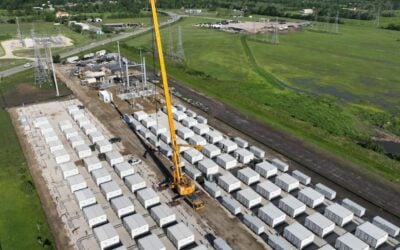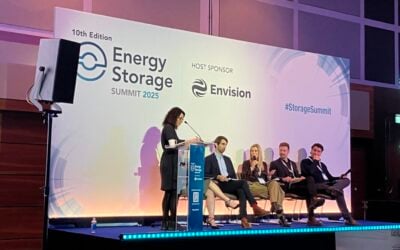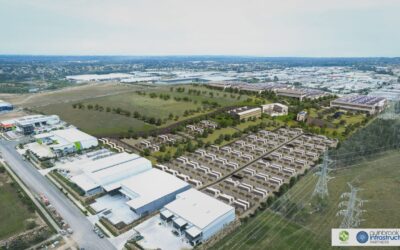
California governor Gavin Newsom has taken steps to accelerate the 300MW Cornucopia Hybrid Project in Fresno County, California, US.
The project comes from renewable energy developer and independent power producer (IPP) Baywa r.e.
The 300MW of storage capacity is coupled with a 300MW solar array on approximately 2,000 acres in southwestern Fresno County.
Notably, the project will accommodate ‘dual-use’ agriculture by employing sheep grazing alongside the solar modules. Baywa r.e. said this offers benefits like managing vegetation and enriching the nonprime soil.
Try Premium for just $1
- Full premium access for the first month at only $1
- Converts to an annual rate after 30 days unless cancelled
- Cancel anytime during the trial period
Premium Benefits
- Expert industry analysis and interviews
- Digital access to PV Tech Power journal
- Exclusive event discounts
Or get the full Premium subscription right away
Or continue reading this article for free
Cornucopia was initially targeting a construction start of Q4 2027 with an estimated commercial operation date of Q2 2030. Newsom’s action may move these processes along though Baywa r.e. has not confirmed any new dates.
Newsom certified Cornucopia on 19 March, using an infrastructure package passed in 2023 to ‘build more, faster’, in combination with a senate bill.
The infrastructure package, public resources code section 21178 (PRC 21178) stipulates in section h:
“The purpose of this chapter is to provide, for a limited time, unique and unprecedented streamlining benefits under the California Environmental Quality Act for projects that provide the benefits described above to put people to work as soon as possible.”
Senate Bill 7 (SB 7) allows California’s governor to certify eligible clean energy and green housing projects for judicial streamlining under the California Environmental Quality Act (CEQA).
Additionally, Courts must decide CEQA challenges to certified projects within 270 days to the extent feasible. The governor’s office says this can save months or even years of litigation delays.
The project met multiple requirements for streamlining, including being an eligible energy resource, establishing the prevailing and living wage requirements, minimising impacts to disadvantaged communities, paying the costs of trial court and more.
The full certification can be read here.
Newsom’s move comes at a time when some parts of California and its political institutions are going the other way, and adding more rigorous requirements and scrutiny on large-scale BESS development.
Recently, the California Public Utilities Commission (CPUC) established new standards for the maintenance and operation of battery energy storage facilities within the while assembly member Dawn Addis’ introduction of Assembly Bill 303.
Announced 13 March, the CPUC modified General Order 167, which currently provides a method to implement and enforce maintenance and operation standards for electric generating facilities.
In the week following the Moss Landing fire, California Assembly member Dawn Addis introduced AB 303, also known as the ‘Battery Energy Safety & Accountability Act’.
The Act proposes removing rules that allow persons proposing battery energy storage facilities of 200MWh capacity or more to apply for certification with the California State Energy Resources Conservation and Development Commission – the ‘Opt-In’ programme – effectively bypassing the need for local authority permitting.
Recently, Energy-Storage.news published an article about a solar-plus-storage project with a 4.6GWh BESS that has progressed through the CEC’s Opt-In programme, in which we included a roundup of all eight projects using it (Premium access).
The governor’s office also notes that streamlining Cornucopia and other projects helps California achieve its goal of powering the state with 90% clean electricity by 2035 and 100% clean electricity by 2045.





